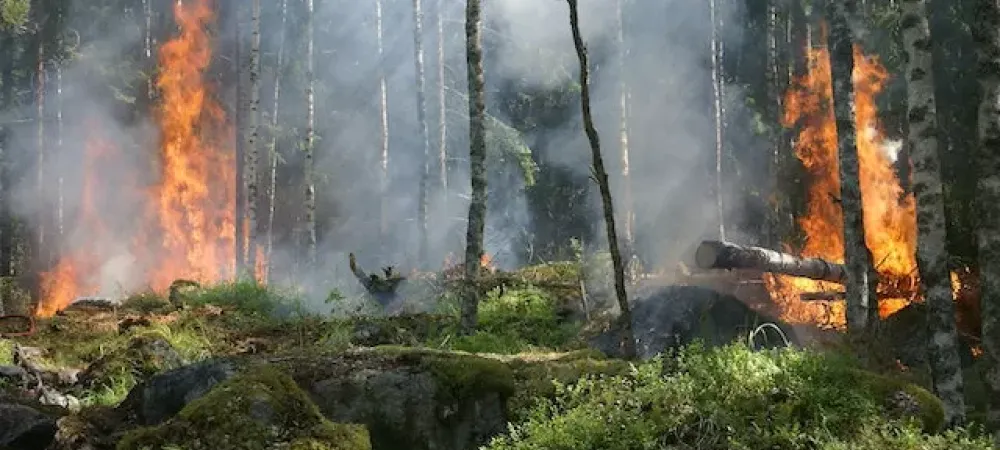How Wildfires Affect Pests

Wildfires are a force of nature that dramatically reshape ecosystems, often leaving a trail of destruction in their wake. While the immediate impact on forests and wildlife is evident, the aftermath of these fiery events also brings about significant changes in the populations and behaviors of pests. As flames consume vegetation and alter habitats, pests—ranging from insects to rodents—respond in various ways, adapting to the new environmental conditions.
What Happens To Pests During A Wildfire?
A wildfire can be a scary and devastating event for California wildlife, but many species are used to fires and have adapted ways to live with them. Many insects can easily fly away and find a new home if a fire breaks out while others will perish. Rodents and other animals have no choice but to seek shelter underground, climb high into trees, or escape the area completely.
While it may seem like a bad thing, many pests living outside the burned area will re-invade and re-populate the area rather quickly. Some pests like beetles, worms, and grasshoppers strategically lay their eggs underground or in rotting logs where the moisture content protects them from the heat of the flames.
Does Pest Activity Increase After a Wildfire?
After a wildfire, pest activity can initially increase as pests are forced to flee their destroyed habitats in search of new shelter. This often leads to a surge in pest activity in nearby residential homes and commercial buildings as pests such as rodents, insects, and other creatures seek food and protection.
What Can You Do to Prevent Pests After a Wildfire?
In the vicinity of recent wildfires, you can expect to see more animals seeking water, food, and shelter. If your home is in the path of fleeing pests, some of them may seek shelter inside your home.
Here are some ways to prevent pests from entering your home after a wildfire:
- Remove Rotting Food: When wildlife is displaced they will be desperately searching for food and water. If you have evacuated the area and left rotting food in your home or garden, pests will easily find it.
- Clear Debris: Having a lot of debris and junk in your yard can be attractive to animals that have been displaced by wildfires. Keep your yard clean of leaves, brush, and rotting wood. Get rid of junk like unused lumber, old cars, or abandoned outbuildings.
- Trim Your Trees and Shrubs: Prevent pests from accessing your home by trimming back limbs that hang over your roof. Make sure there is a space between shrubbery and the outer walls of your home to prevent rodents and small mammals from using the space for undetected navigation.
- Seal All Entry Points: Be sure to seal up any cracks in your home to keep out mice, rats, squirrels, cockroaches, crickets, termites, ants, and other pests. Caulk should be applied around the frames of windows, doors, and utility openings. Cracks in basement walls and foundations should be sealed.
Call The Pest Control Experts
We all love enjoying California wildlife from a distance. But sometimes pests and animals get a little too close for comfort and become a threat to us and themselves. If you are having concerns with local wildlife, then call the professionals at Big Time Pest Control. We can bait, trap, and remove animals safely and humanely with our wildlife control services. We can even help you protect your home so wild animals stay away from your property. Contact us today!
